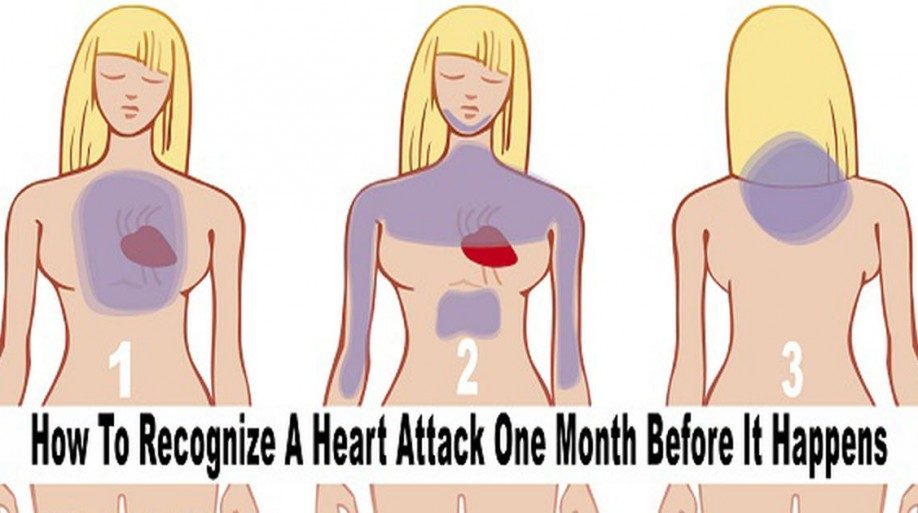The report suggests that almost eight hundred thousands people in the US suffer a heart attack. When arteries get clogged with plaque, the heart is put through an extra pressure to pump the blood, and with time it weakens. A heart attack is caused when there is a blockage of blood supply to the heart, or by an arterial blood clot.
Symptoms of a heart attack can vary from person to person, so knowing the signs can help you take appropriate steps to avoid it.
1. Experiencing chest pressure
Tightness, pressure, palpitations, or pain in the chest, upper abdomen, back, neck, jaw, arm, and/or shoulder are signs that blood supply has been limited to these parts of the body, and it is the most common symptom of coronary distress.
2. Cold and flu symptoms
Did you know that wheezing and coughing are ways in which our body tries to get the blood flowing?
A common “coming down with something ” feeling of —especially in the presence of other indications—is a tell-tale symptom that your heart is sick.
3. Cold sweats and dizziness
When you experience a sudden onset of regular sweating for no apparent reason is often an early sign of heart attack. Dizziness in most cases is caused by a lack of blood flowing to the brain.
4. Severe exhaustion
When the arteries get clogged up with time, and the blood flow gets restricted, the heart can not pump enough oxygen leaving us feeling fatigued and weak. Simple tasks such as picking up the mail can suddenly feel like running a marathon.
5. Overall weakness
When muscles aren’t getting enough of the vital nutrients and oxygen they need because of the restricted blood flow, you can suddenly feel continued weakness—when every step is a chore—is unusual.
If the heart isn’t functioning correctly, the lungs can’t too. If you find it hard to take a full breath, the problem might not be with your breathing apparatus but the restriction of blood from and to the heart.


Leave a Reply